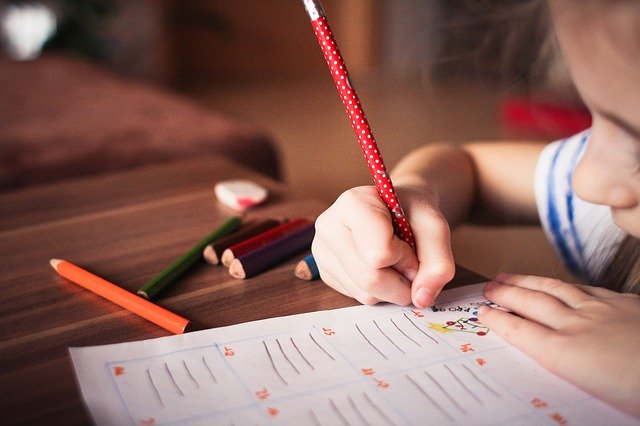Allah says in the Quran, wealth and children are the things in this world that bring joy, and that applies to Muslims and non Muslims. This is a blessing from the Creator. Having children is a natural desire in mankind.
Islamic parenting tips
Islam guides Muslims on how to be good parents. The Quran and Sunnah give parenting tips which we can practice to raise successful offspring. These include:
- Establish Salah
- Make dua for your children regularly
- Talk to your children, not shout at them
- Test your children with responsibilities
- Create a good environment for learning
It is well known and experienced that no human wants another human to be better than him, except in the case of a parent wanting their child to be better than them. This natural desire to have children is also found in the Quran.
‘And indeed, I fear the successors after me, and my wife has been barren, so give me from Yourself an heir.’
Quran [19:5]
Children make life worth living, but with every blessing come a responsibility. The primary responsibility that Muslims have is to raise their children to be righteous and good Muslims. Allah says in the Quran:
‘O you who have believed, protect yourselves and your families from a Fire whose fuel is people and stones…’
Quran [66:6]
Read this article on Kindness to Parents >>
How you can influence your children in a good way
Firstly, you have to be a good role model to your children. If you have a good character yourself, then your children will have good character. If you don’t follow the ideals you wish the child to aspire to, then how can you blame your own child for failing to live up to them?
What children see around them in their immediate family, they are likely to follow the same pattern. So if they see their father smoking, the son is more likely to smoke himself when he grows up. As you do to others, shall be done to you. Your child will replicate what he/she sees growing up in his/her own family.
- Establish Salah
This cannot be overstated. When we teach children to pray regularly, one of the things they are learning is that there is an authority even higher than their parents. There is an authority that must be obeyed even more so than the authority of the parents. A parent can’t make their child obey them naturally, but when the son or daughter learns about Allah, they then realise how much He (Allah) has commanded the child to respect and obey the parents. So when the Lord is telling him, the child will love his parents naturally. If a parent doesn’t pray Salah every day, how will their child pray himself?
- Make Dua (supplication) for your children regularly
If you don’t ask Allah’s help for your children, how do you think you are going to get the help? Where is your love for your children? Allah tells us in the Quran to make dua for our children. One of the best chances of a dua being accepted is the dua of a parent for their children. Making dua all the time means you’re always thinking about the best for your children so when you see an opportunity for them, you will take advantage of them and if you see a potential harm, you will advise them, because their success is always in your mind.
- Talk to your children, not shout at them
A parent shouldn’t be there just to rebuke and criticise, this doesn’t promote a good upbringing. Perhaps you won’t be able to be intimate friends with your children, but you have to learn how to have meaningful conversations with them that are beyond just ordering and commanding. Yes, they deserve to have good discipline every so often, but this cannot be the only type of relationship, and this won’t be effective when they’ve grown up to be teenagers and older, they will not listen at all. You must have some form of a positive relationship.
- Test your children with responsibilities
When a child becomes old enough, which in Islam is when they reach puberty, give them some responsibility and see how intelligent they are. For example, give them some money to purchase an item you need and let them go shopping, see if they bring back the correct item on their own. Increase responsibility bit by bit. So basically, stop treating them like kids all the time. It’s at this time that they are considered adults and are islamically responsible for their sins, their personal lives and relationships, and their Salah.
- Create a good environment
This begins at home rather than at school. When you expect your child to go to evening or weekend school classes to learn about their faith, you can’t realistically expect them to learn everything that they need to in those couple of hours. They need to see a continuation of an Islamic environment at home and in school, they learn more. They shouldn’t be seeing a polar culture from Islamic school and their home environment. Also, make sure they surround themselves with good people and good friends outside of the home. Do things with them outside of the house.
Although the above points will certainly help with upbringing, it has to be said there is no magic cure to successfully bringing up children. Even doing all this may not result in what you hoped, as in the case of Prophet Nuh’s (AS) son for example. But these are good guidelines to follow. And Allah knows best.
Allah describes in many places the relationship between parent and child by way of examples.

Ibrahim’s (AS) relationship with his father
Ibrahim (AS) was a devout Muslim and his father Azar who was a devout idol worshipper. Some people speak of children being led astray by the environment that they find themselves in, which is true to some extent but with Ibrahim (AS) you have an example of a person who started questioning and exploring his environment, even before he became a Prophet, so the Quran emphasises the importance of thinking for yourselves whichever the environment you are in, and not necessarily following the crowd if you don’t believe their path to be true. In terms of environments, Ibrahim (AS) didn’t have a good environment at all but still his character was amazing.
Yaqub AS and His children
In another example, take Yaqub (AS) who has relationships with two sets of his children, some of his offspring being good and others bad. Being a Prophet, you can confidently argue that Yaqub (AS) was a good parent to all his children, in terms of fairness, generosity etc to all. In terms of his environment, he did everything he could to provide a good education and upbringing to all his children, yet the results that came about were completely different. Sometimes the results are good as in the case of Yusuf or they turn out not so good, as the case with his brothers who were rebellious and tried to get rid of him. In addition to this, Yusuf (AS) became separated from his father at a very young age and ended up going from one bad environment to another, but he still remained a good person with amazing character.
In this life, as far as our children are concerned, we have no control over how they will turn out. We have a responsibility, but not control. Our responsibility is to do the best in our power to teach them correct morals, manners and education etc but once they become adults, their actions are their own responsibility and Allah will not question the parents for the wrongs the children then do.
Lesson on Parenting by Yaqub (AS)
The reaction of Yaqub (AS) when his children brought the blood stained shirt to him trying to convince him that Yusuf (AS), their brother had been taken by a wolf, is something to remember:
‘And they brought upon his shirt false blood. [Jacob] said, “Rather, your souls have enticed you to something, so patience is most fitting. And Allah is the one sought for help against that which you describe.’
Quran [12:18]
Yaqub (AS) didn’t turn them out of his house, even though he knew they were lying. But instead he said patience is most fitting. When you son or daughter has become an adult, and makes mistakes, gentle advice and patience may be the best action in this situation.
Luqman’s (RA) advice to his son
In the Quran, Allah tells us how Luqman advised his son. This part of the story is perhaps the longest in the Quran regarding parenting and Allah describes him in the best of terms and states that He granted him wisdom. When Luqman was advising his son, who was the most beloved to him, you see from the verse the circumstances under which Luqman gave advice. He doesn’t give his son lecture after lecture all the time, but finds the right time and the right opportunity to bring up the topic so it will be received and understood correctly.
‘And [mention, O Muhammad], when Luqman said to his son while he was instructing him…’
Quran [31:13]
Dealing with the loss of a child
The loss of a child is devastating to any parent. Which parent wishes that they will outlive their children? There is really no test that a person will face harder than the loss of their child. But Allah has not burdened any soul beyond its scope. Many ahadith state that from conception, all the way through to the end of the postnatal period, a woman is indeed considered to be in the path of Allah the whole time.
The bond that is created between a mother and her child is a very strong bond and one of the hardest things is that bond being broken by the death of her child. The Prophet (SAW) has said comforting words for the parents who lose their child. For example, he says ‘the miscarried foetus will meet both of its parents on the day of judgement and will drag both the parents to Jannah (paradise), even with its umbilical cord.’
Another hadith narrated by Abu Hurairah says the Prophet (SAW) said to the effect: a child will pull the helm of its parents’ sleeves in order to take them into Jannah.’ So this shows that because it is a great trial, it could mean a person’s ticket to Paradise. And a hadith also states that the greater reward comes from the greater trial. It is also reported that if a woman dies during any time in that period, she dies as a martyr for the sake of Allah.
May Allah make our children the coolness of our eyes.
Follow us on https://medium.com/@qrecital


